Like some nocturnal bird of prey, the songs are silhouetted against the night, carried along by swooping synths and a pulsing beat. The vocals dip and glide on narratives of self-ruin and hard-won redemption, delivered with a measured intensity.
In a crowded field of electronic rock, MISSIO is swiftly carving out a distinct aesthetic. The Austin duo’s major-label debut is titled Loner – and what is overtly an album structured around themes of alienation and antagonism is, at its heart, very much about connection and unity. Matthew Brue’s lyrics are autobiographical yet relatable; David Butler’s arrangements and production simultaneously intimate and cinematic.
Take the breakout single “Middle Fingers,” for instance (official video here, live on Conan here). The opening lines are situated somewhere between a sneer and a confession: “I am tired of seeing pretty people everywhere – I am not a model, middle fingers in the air … I used to drink whiskey, now I’m stuck with Perrier – I’m an alcoholic, middle fingers in the air,” Brue intones. This is not gratuitous coarseness, though. As Brue explains, far from being a “fuck you” to the world, the song says “fuck this situation,” in defiance of demons external and internal. MISSIO’s songs are raw, honest, compelling – and an invitation to dance through the darkness.
Indeed, the sense of community fostered – the authenticity of the message behind the music – is palpable at MISSIO’s shows. Framed by geometric strobes, Brue and Butler – both impossibly lean and lithe – let loose with nonstop kineticism, paired with propulsive rhythms provided by touring drummer Jaydon Bean. Whether entrancing the audience with brooding songs like Bottom Of The Deep Blue Sea or getting us moving to angular numbers like KDV (featuring biting verse from SHUG), the young band has an instinctual ability to connect immediately with the crowd. And the crowds keep growing – a testament to their hard work on the road. Shortly after being signed to RCA earlier this year, MISSIO headlined the Sirius XM-backed Alt Nation tour. They’re on the east coast again this month before rounding out the summer at Lollapalooza. This fall will see MISSIO out west, then back in their hometown for ACL, before heading to Monterrey, Mexico for the Live Out Festival. During their brief spells off the road, Brue and Butler have been busy recording haunting acoustic versions of their songs. (Between the somber timbre of the piano and the vulnerability of vocals echoing in a vast empty space, if you don’t get chills, check for a pulse.)
To the outside observer, the band’s meteoric rise seems likely to be as disorienting as it is thrilling. So how are the guys handling this intense volume of touring? That was one of the questions we put to MISSIO before their show at Brooklyn’s Rough Trade on Friday.
Thanks so much for making time to chat. I saw you guys at Gramercy Theatre a few months back – you were amazing.
Matthew Brue: Thank you! That was one of our favorite shows. The crowd was awesome, and the venue, too. RCA and Warner/Chappell were there and we hadn’t met everyone before then, so it was nice to be in the same room for the first time.
David Butler: It was also our first time playing New York. There were a lot of checkmarks on the bucket list from that show.
It was memorable from the audience side, too. Let’s start with the album art for Loner – it’s sort of cybernetic-looking – what’s the story behind that image?
DB: We worked with a super-talented friend of ours from Austin. We listened to the album together and talked about what it meant. We had some creative discussions but we let him interpret it. I think we each take our own meaning from it. And it’s cool to let artists do their thing. I love the idea of other artists being inspired by your art to create more art – it’s a great circle.
MB: We gave him lyrics ahead of time. It was cool to see the final outcome – what he made and how perfectly it fit with the concept of the entire record.
DB: We didn’t have a “break down the art” conversation with him, but I know it means something to both [Matthew] and me. The head is facing down. You don’t know if it’s a robot, but there are mechanical elements – it looks like radio dials. There’s something dripping from the face – dark vibes.
MB: His company is Pixel Peach – they do a lot of cool work.
I’d love to hear about the band name. Is it from Latin for “mission,” or is there another origin story?
MB: When I was in recovery, my sister sent me this phrase, “Missio Dei,” which stands for “the mission of God.” I fell in love with the phrase because it was beautiful and it had a lot of meaning for me within my recovery. So I had thought about that for several years, and when I looked at why I was making music and why I was still sober, that made sense as the band name. We have a message that we want to share about addiction and recovery. So I didn’t really brainstorm names. It was just MISSIO.
You guys had been working together for a while before the MISSIO project. How did you meet? I know you’re not both Austin natives.
DB: I moved to Austin in 2003, so I’ve been there a little while. I was making a career in the studio, producing and engineering records, and also playing in bands. Matt was in a project at a time that was looking to record. A mutual friend hooked us up. We stayed in touch after that, though there was a three-year gap between that project and working together on MISSIO. That [other] band had run its course, and Matt had started writing solo stuff, which is when I came back into the equation.
He told me about MISSIO, and I was blown away by the music.
A lot of random things happened next. We were in the studio, just chatting, and I mentioned that my wife and I were thinking about getting a roommate. Matt was living in an Airstream trailer at the time, writing in isolation. And he said, “I’m looking for a new space.”
Living in an Airstream for a year is tough –
MB: – especially being 6 foot 2 –
DB: He ended up moving in and we started writing together. Some performance opportunities came up, and it made sense for me to do it with him.
Sounds like it came together pretty organically.
DB: Super organically.
MB: There are a lot of things David can do, that I can’t do – and vice versa. And he’s amazing at the live performance aspect. It just flowed so well together, how we work.
DB: We are opposites, but we work well together because of that. And I think there’s a good amount of trust, which is important as you grow and develop as a band. We started being creative together and it flowed into doing business – playing shows, going on tour – it happened really fast. Once we had Loner written – we wrote two EPs before that, but we were more of an online band – but with Loner, we wrote it and then we took a step back. Not to sound overly confident, but we knew there was something there. Once we connected with our management, it all happened really fast –
– and suddenly RCA is knocking at your door.
DB: Yes, and we’ve just been running behind the train ever since, trying to catch up. [laughs]
MB [to P&W]: I love that you still write in a notebook, by the way. I feel like it’s such a rare thing – people actually writing. I wish more people would write.
I just like having the physical thing. It’s part note-taking for interviews, part journaling about the experience.
DB: I brought a journal for the first time in years on this tour. An actual, physical journal. There’s something so limiting with a phone, typing line by line. On a page, you can go anywhere with a pen. Songwriting is about looking inward and sometimes I forget to do that. But having a notebook means I’m starting to jot thoughts and impressions down on paper. Old-school paper.
It’s analog.
MB: Using your hand to write.
I have awful handwriting, though.
MB: But nobody else has to read it –
DB: – it’s your own secret code.
An unintentionally secret code. So we were talking on the way up here about getting used to the rhythm of tour life – figuring out when to eat, for example. How are you finding the road? Do you take turns driving or does your tour manager do most of the driving?
MB: We all do everything – we all drive. I’m still trying to figure out what “normal” road life is. We’ve been so busy that when we get a day off, I don’t want to do anything. But I’d like to experience more of the cities and have my go-to places: restaurants, coffee shops, barbershops. But I don’t think we’ll be able to do that until we’re in a bus, because then we’ll get to the city in the morning and have the day to rejuvenate and hang out. For now, our schedule is: Play the show, go to the hotel, wake up at 5:30, drive four or five hours – there’s just not a whole lot of time to explore.
DB: This is all really new to us. We both toured independently before this band, but never like this. It’s one thing to go on tour for a month or two. But we’ve been on the road for almost six months. We’ve had some breaks at home, but it’s been pretty constant this year. There are parts you can muscle through at the beginning, but I think we’re still searching for the sweet spot. We haven’t found it just yet.
MB: It’s definitely not as romantic as it sounds to the outsider. I don’t know if you’ve seen hotel washing machines, but –
DB: – are my clothes cleaner or dirtier after I put them through those washing machines? It’s unclear.
MB: It’s not elegant.
DB: We’ve experimented with some Airbnbs. It’s been hit and miss. Airbnbs can be cool because they give you the illusion of home. You’ve got a living room, everyone has their own bedroom to go to –
MB: – and there’s a kitchen, so you can cook.
When you’re driving, do you take turns DJing or are you books on tape kind of guys?
DB: Driver DJs – it’s driver’s choice, always.
MB: My choice is always silence. I think it’s because we’re playing every night, soundchecking every night.
DB: We listen to music maybe 25% of the time. On this tour, we’ve been listening to podcasts and interviews.
Which podcasts?
MB: NPR’s How I Built This – they interview CEOs and share their stories of success and failures.
DB: And what were we listening to today –
MB: Tim Ferriss. He interviews everyone – entertainers, stock exchange guys. And Serial. If you’re going to start podcasting, start with Serial. Season one.
DB: Don’t listen to season two though.
I’ve been digging Vox’s The Weeds – they do deep-dives into policy issues – health care, the immigration ban –
MB: If you like that, you’ll love Serial.
DB: And I’ve been listening to Hardcore History. He picks a topic and deep dives. I listened to 28 hours on World War I.
MB: We just gave you a really long answer.
It’s great. I love getting lists of new things to check out. First concert?
MB: It’s embarrassing.
DB: You tell ‘em. [laughs] Mine was Blink-182 in Houston. And I had an awesome moment early on in MISSIO, right after we signed, one of the first few shows we booked was at a festival with Blink-182 in Houston. And it was the same pavilion where I saw my first concert. It was like completing the circle.
MB: Mine was a Christian Christmas concert. Denver, Colorado. Pepsi Center.
Are you a Colorado native?
MB: Born and raised. It’s such a beautiful state.
So much access to wilderness.
MB: That’s the biggest thing I miss, living in Austin. I feel like I’m an hour or so away from anywhere that’s remotely quiet. In Denver, you can drive fifteen, twenty minutes and you’ll be around nobody. I miss that.
I’ve never been to Maine but we have a day off in Portland, Maine, next week – so I’m really looking forward to that.
DB: I think I’ll go fishing.
MB: Hell yeah! And I’m going to go sit by a lighthouse.
Wait, do you keep fishing poles in the van?
DB: [laughs] No. I’ve been fishing once since high school. But I enjoyed it.
It’ll be an adventure. I hope to see pictures. Last question: first instrument?
MB: French horn. I went to a private school and there was nothing else to do, and the cool kids seemed to be in band. They said I could pick whatever instrument I wanted. I noticed nobody was playing French horn, and I wanted to be by myself – so I chose French horn. I played two or three years and thought, “ok that’s enough.”
DB: My first was guitar. And that’s my main instrument. But I enjoy putting myself in uncomfortable situations when I’m writing, and I realized I had a lot of habits on guitar. So for a lot of reasons, we decided to not put guitar in MISSIO, which I thought was a fun idea. When we started, we were just doing it for us, so it didn’t matter. And now I think it’s hilarious that we’re on tour and I’m playing drum pads and keys – and neither of them are close to my main instrument.
It’s a fun challenge for me and I’m learning a lot of new approaches to music. But there’s also so much irony to that: Practice one thing your whole life then switch at the last minute, and that’s what you end up doing. But it’s cool. I never tried to have an identity tied to any one instrument.
We both try to serve the song. I don’t care if Matthew plays everything on a song, and he doesn’t care if I play everything – we just want to make the best-sounding music we can.
MB: Our first attempt at playing live was us playing everything. We were behind two giant boxes on stage with instruments and vocal effects boards. And the biggest feedback we got was, “You seem unengaged. There are these giant boxes blocking you.” So we tried stripping it back, which is why I primarily do vocals now. And it’s made a big difference, being able to engage, to look people directly in the eye.
***
The connection Brue speaks of between artist and listener is one reason MISSIO’s performances are so compelling. When the lines “these songs keep me living, these songs keep me sane” wash over us, the words mean something specific to each person – but they address a universal need to navigate through darkness, to find connection despite the alienation of modern life. We’re loners, together.
MISSIO is on tour with IRONTOM, who opened the evening with a high-energy set of classic rock stylings fused with postmodern vibes – imagine some amalgam of Zeppelin, Cold War Kids, and MGMT. Between the Iggy-esque wide-eyed, dramatic moves from frontman Harry Hayes and shreddy, fierce riffs from guitarist Zach Irons, it was small wonder the stage didn’t spontaneously combust. (And the murmurings going through the crowd can be confirmed: Yes, Zach comes from a rock ‘n roll family – his father is Jack Irons, former drummer for Red Hot Chili Peppers and Pearl Jam.) Bandmates Dane Sandborg (bass), Daniel Saslow (keys), and Dylan Williams (percussion) round out the LA-based group, whose new album, Partners – produced by AWOLNATION’s Aaron Bruno – was released earlier this month. Check out this live performance of “Be Bold Like Elijah.”
Pick up MISSIO’s Loner (digital, physical (vinyl coming soon!)), and connect with them on Instagram, Twitter, and Facebook.
Note: MISSIO photos are from two shows – April 10, 2017 (Gramercy Theatre) and June 23, 2017 (Rough Trade).
Article: Vivian Wang

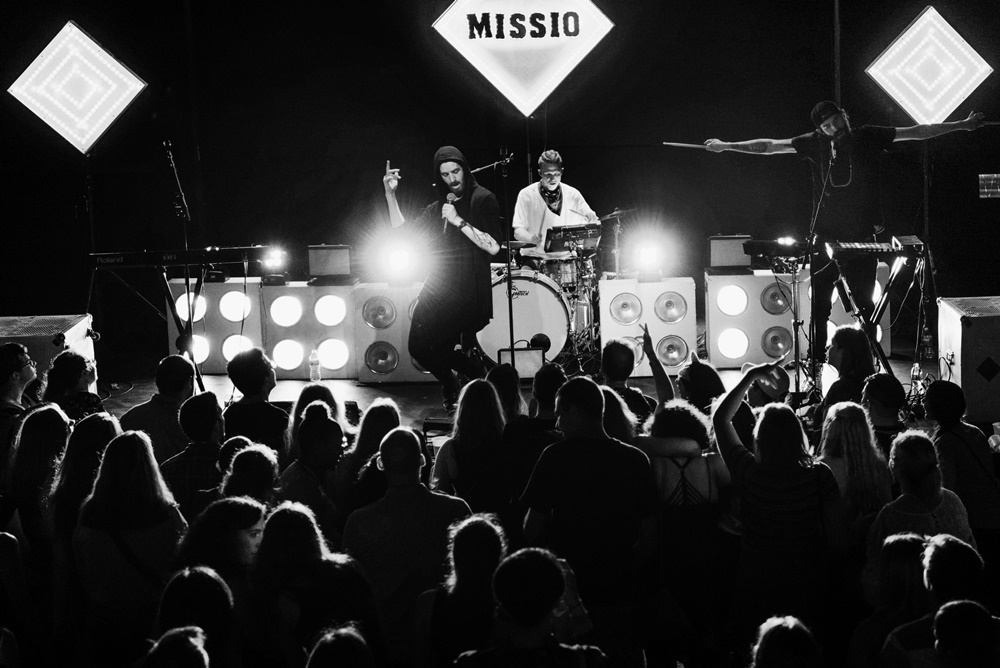
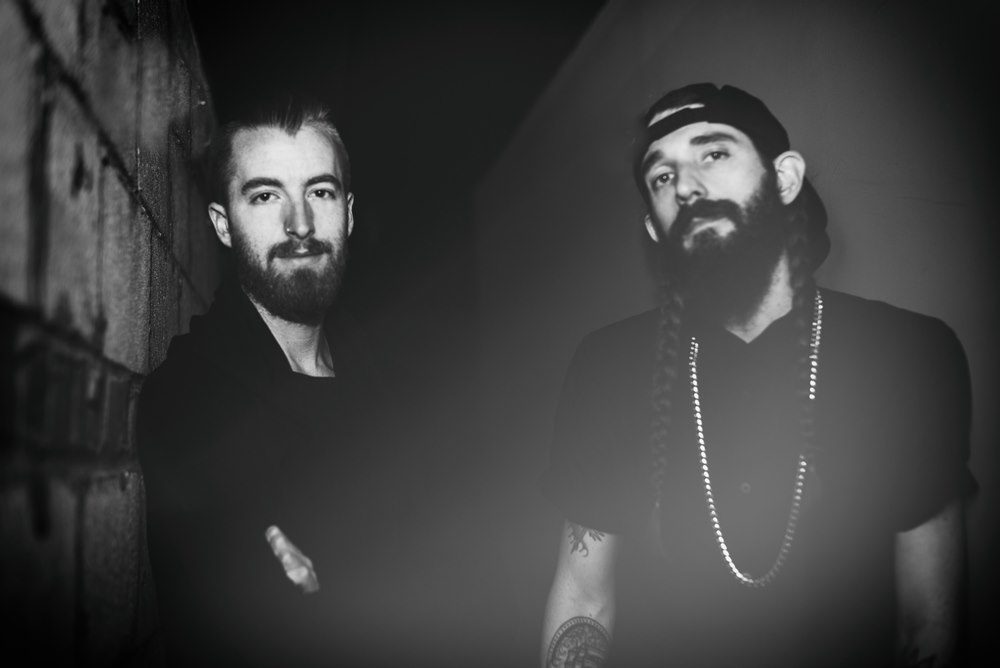

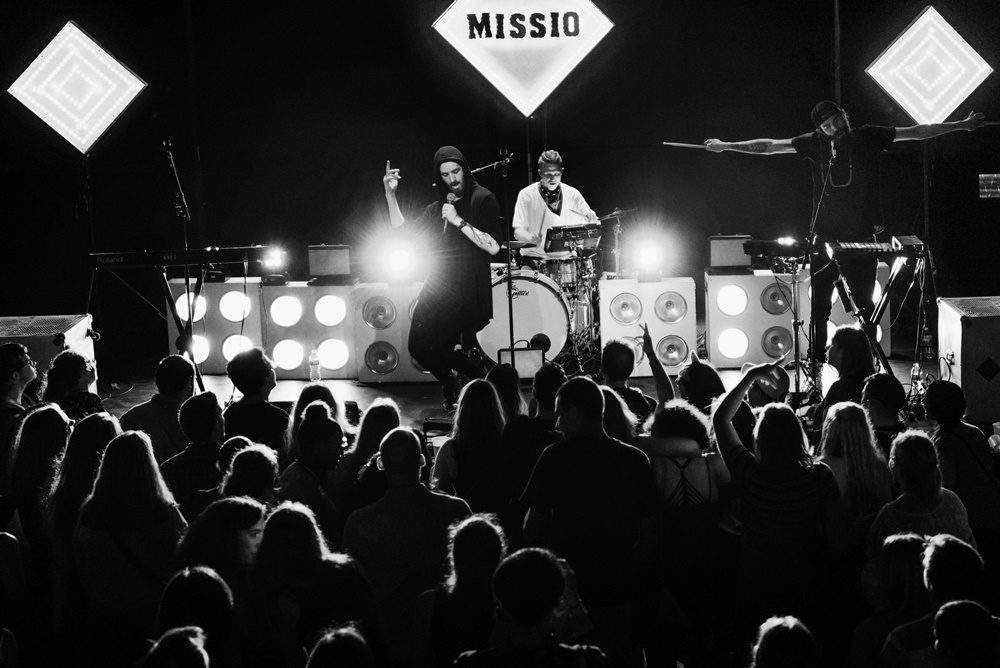
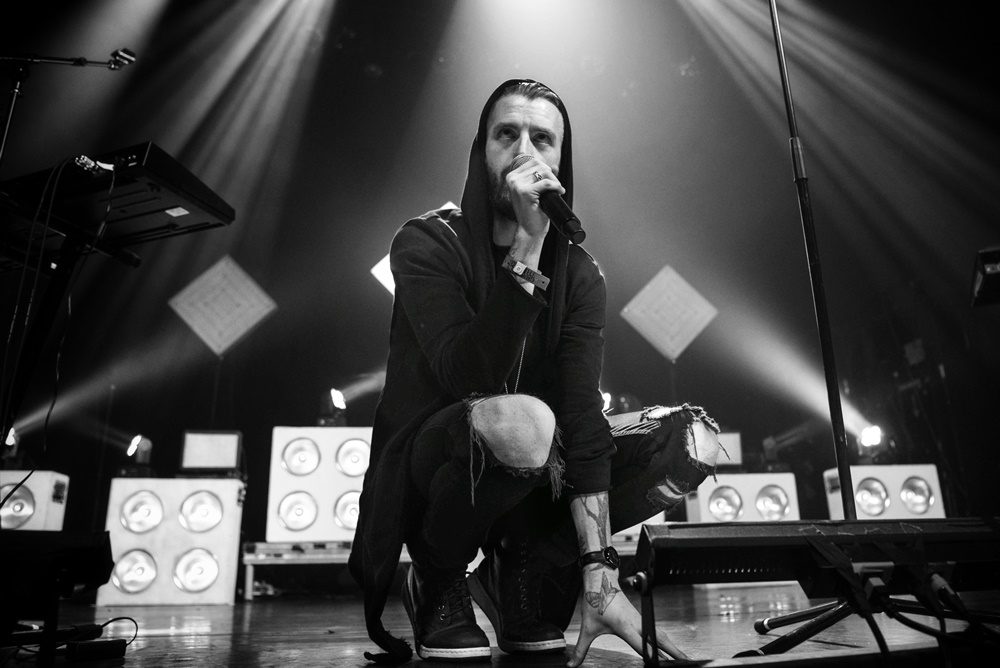
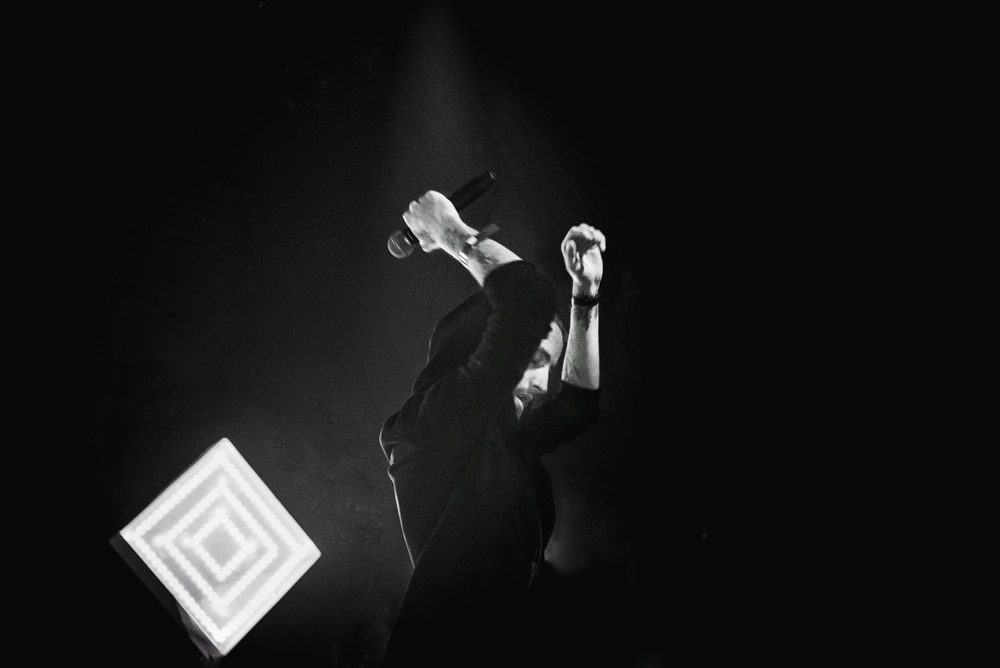
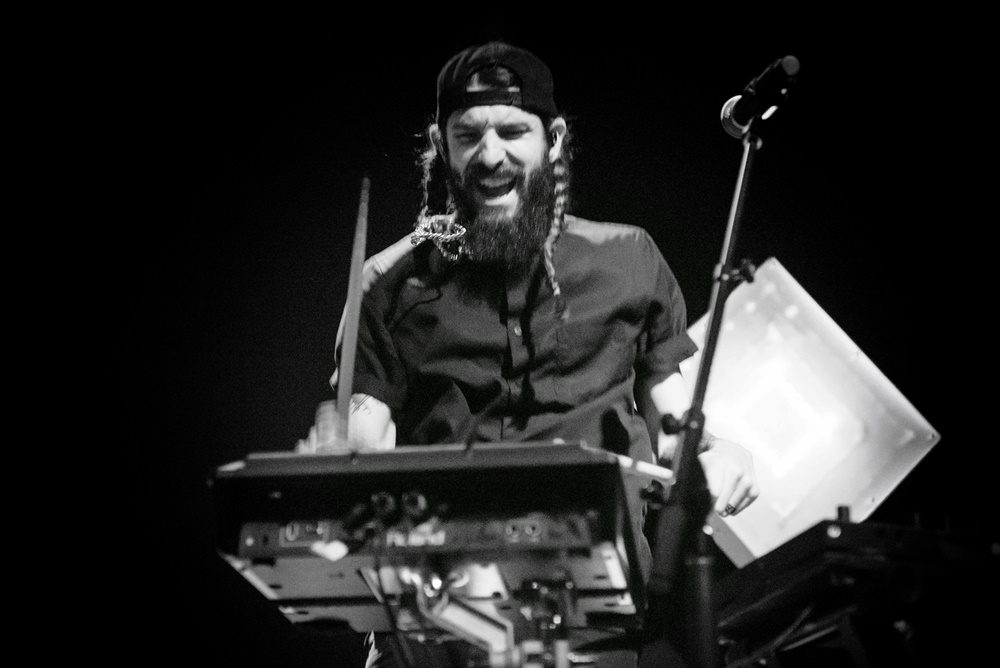
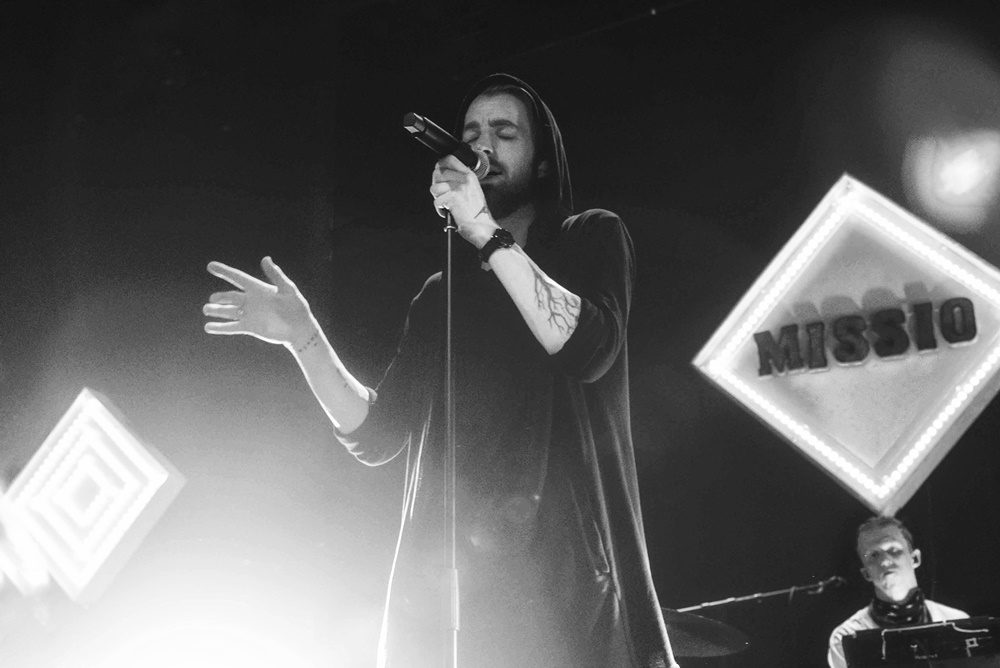
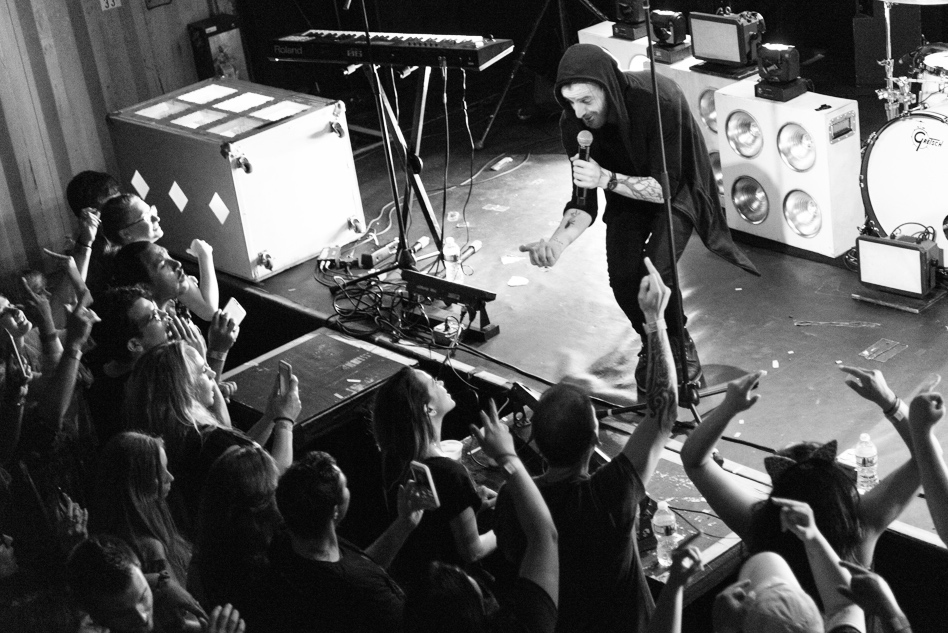
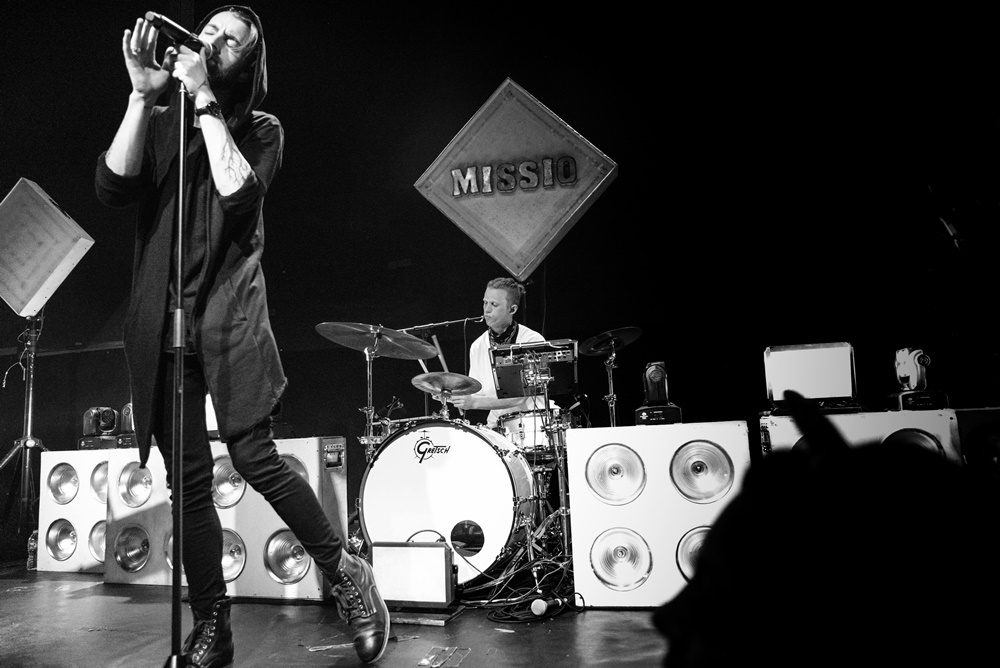
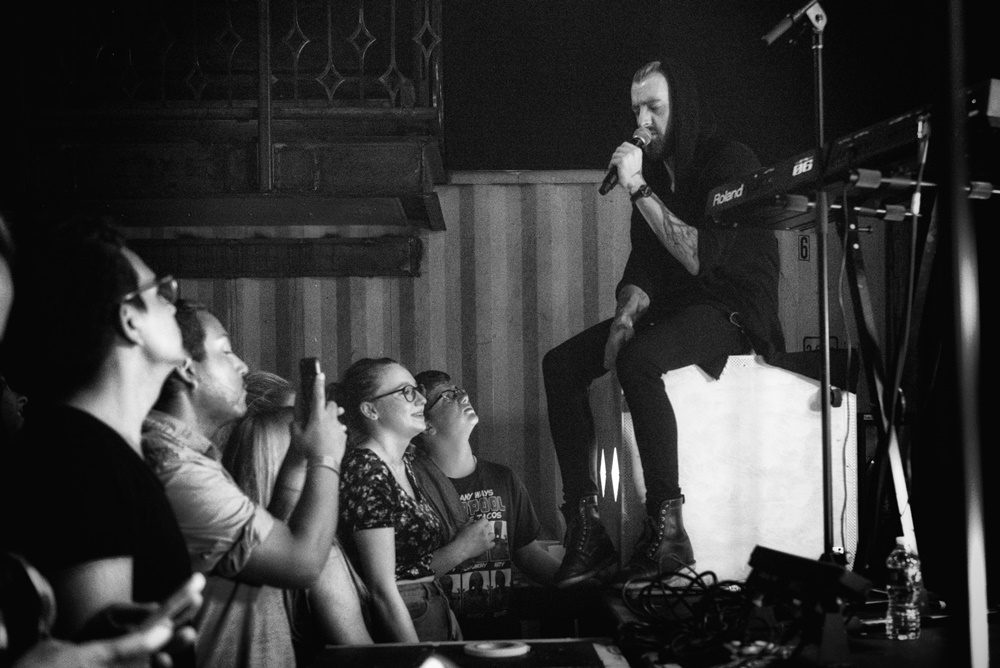
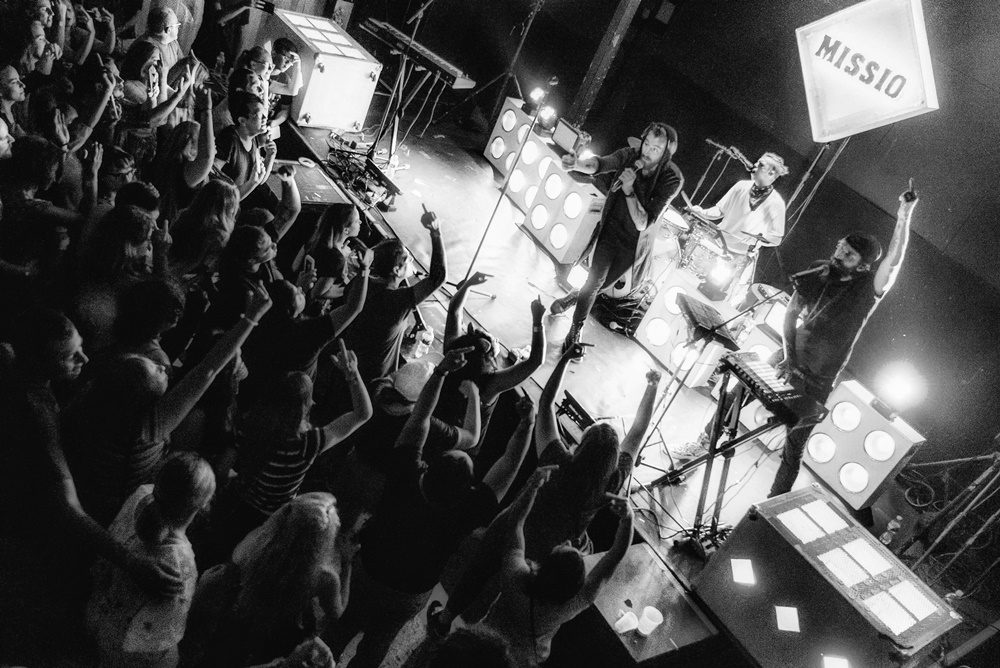
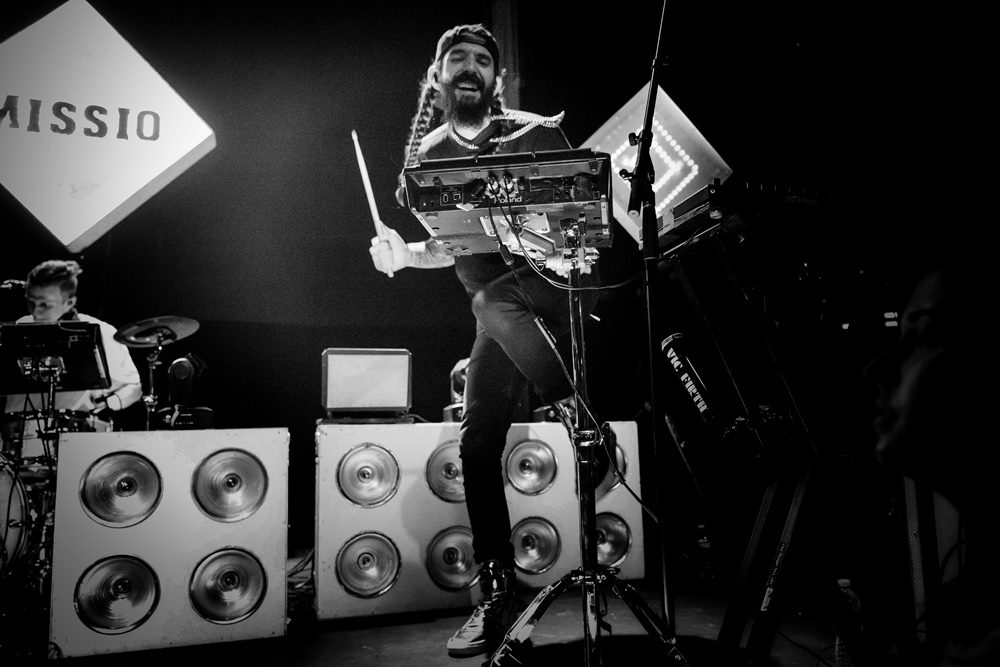
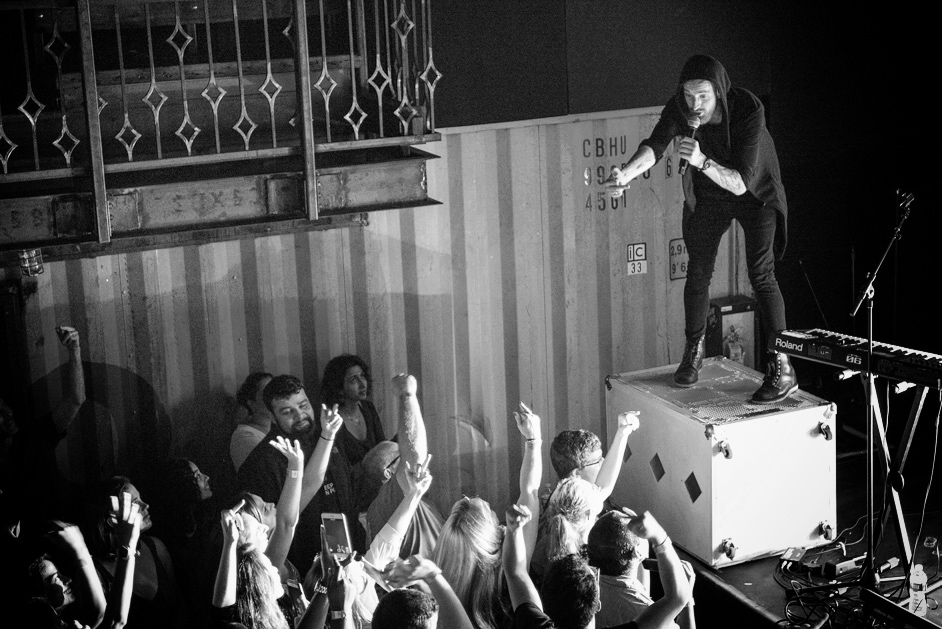
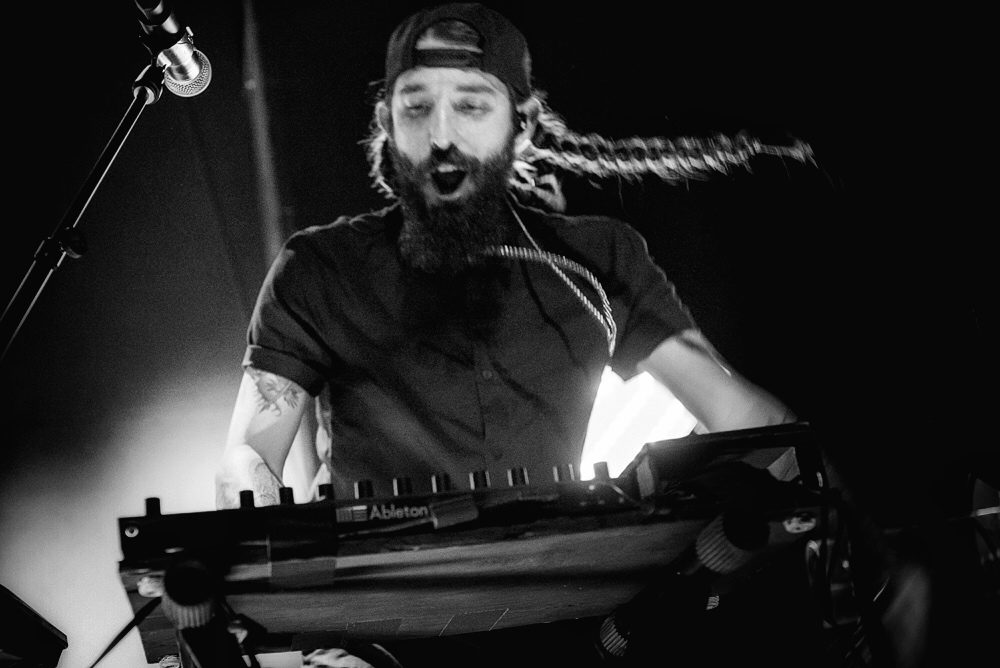
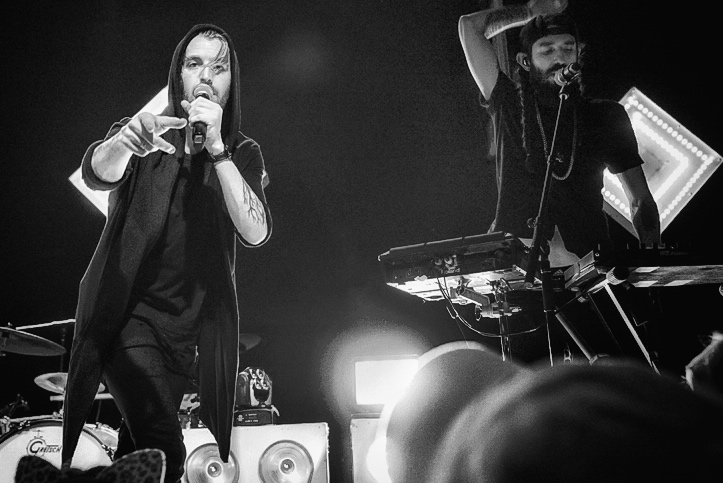
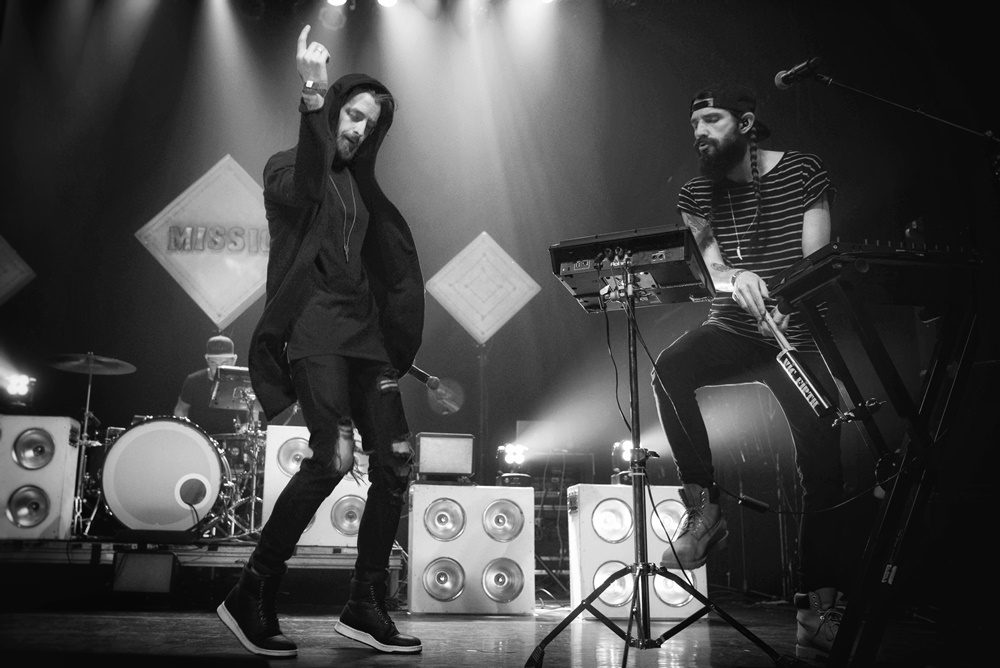
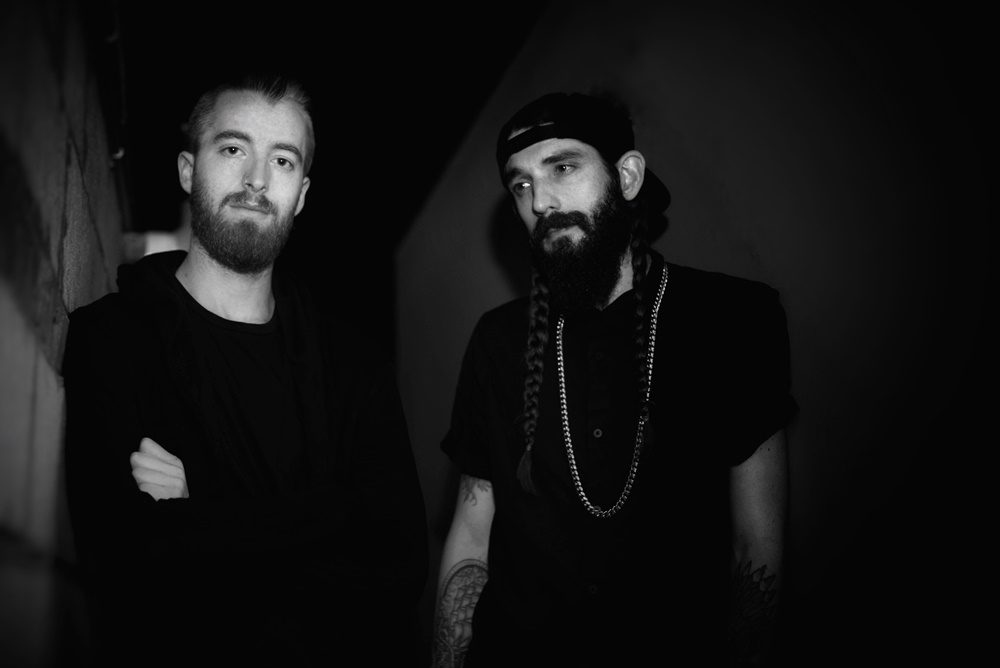
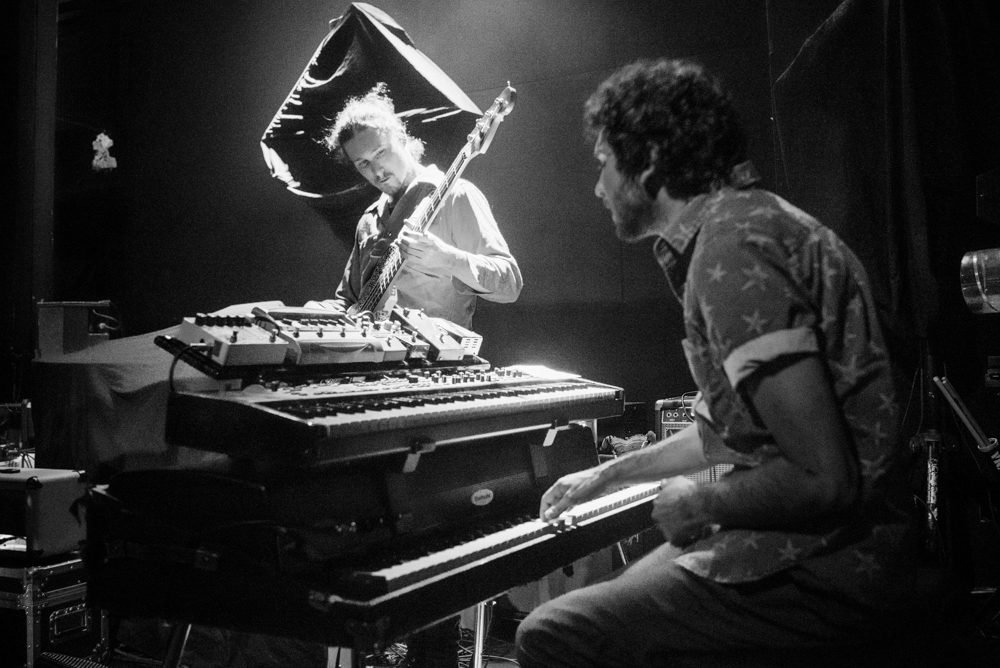
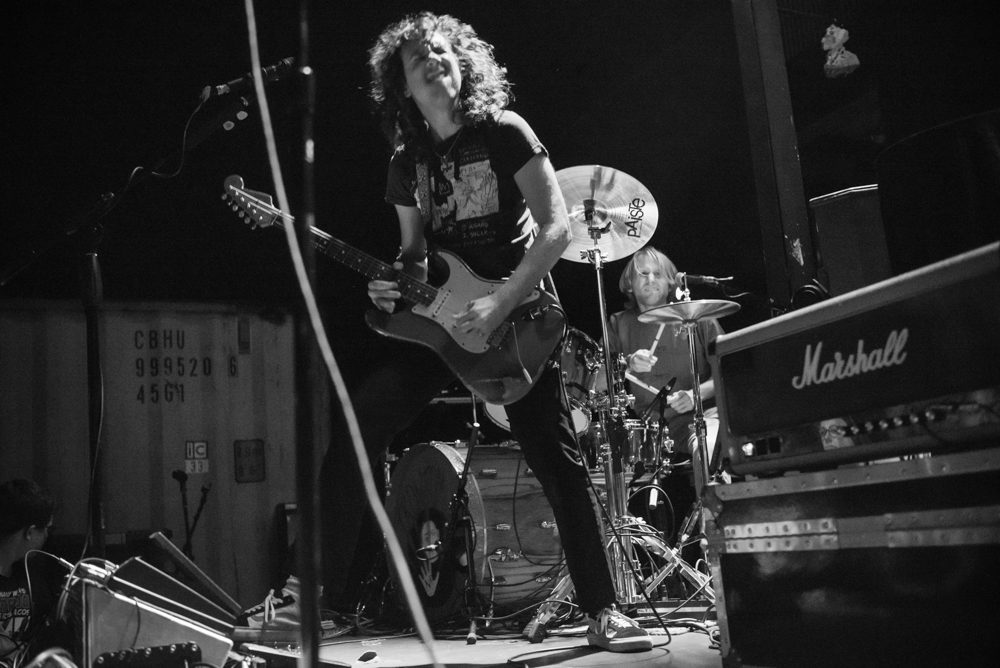
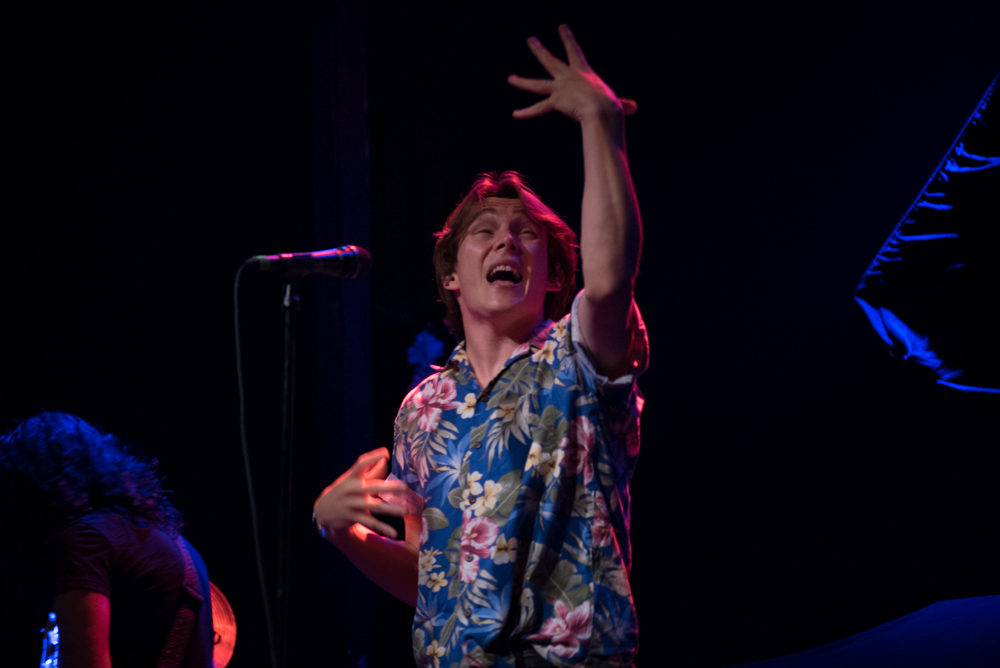
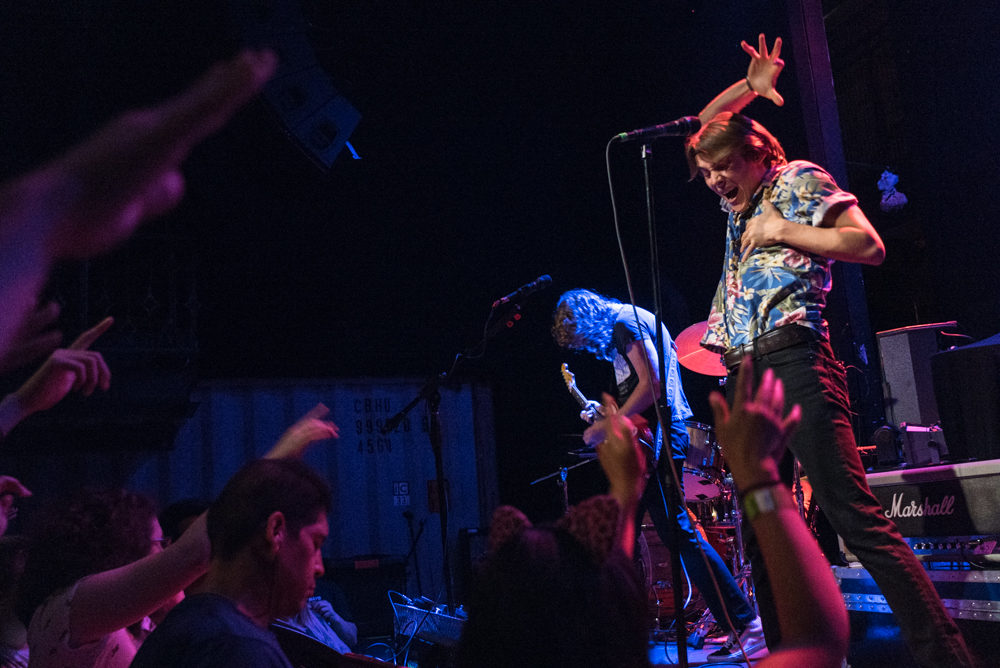
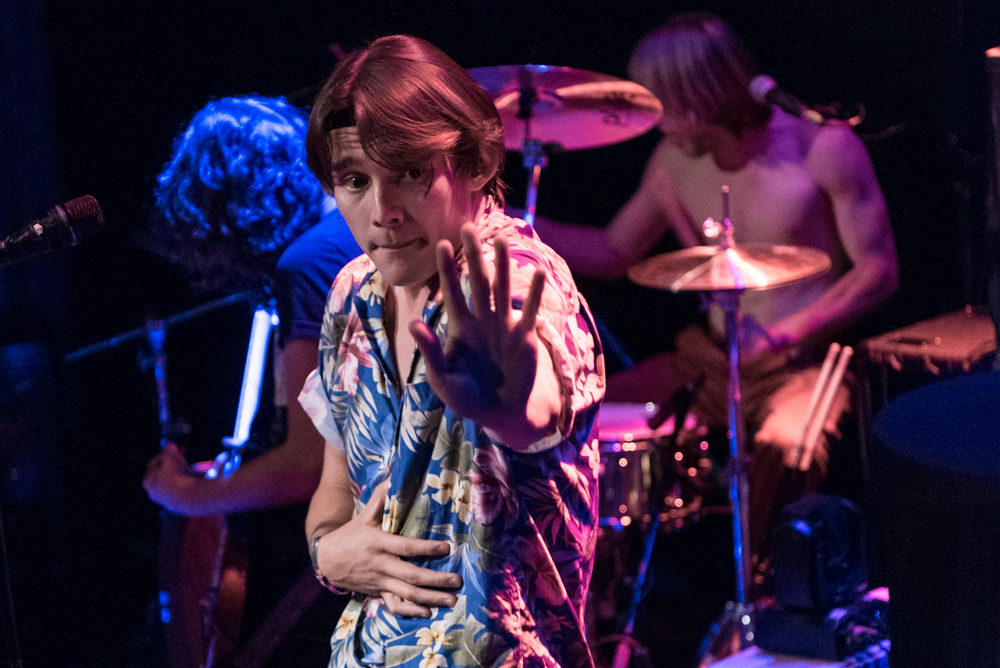

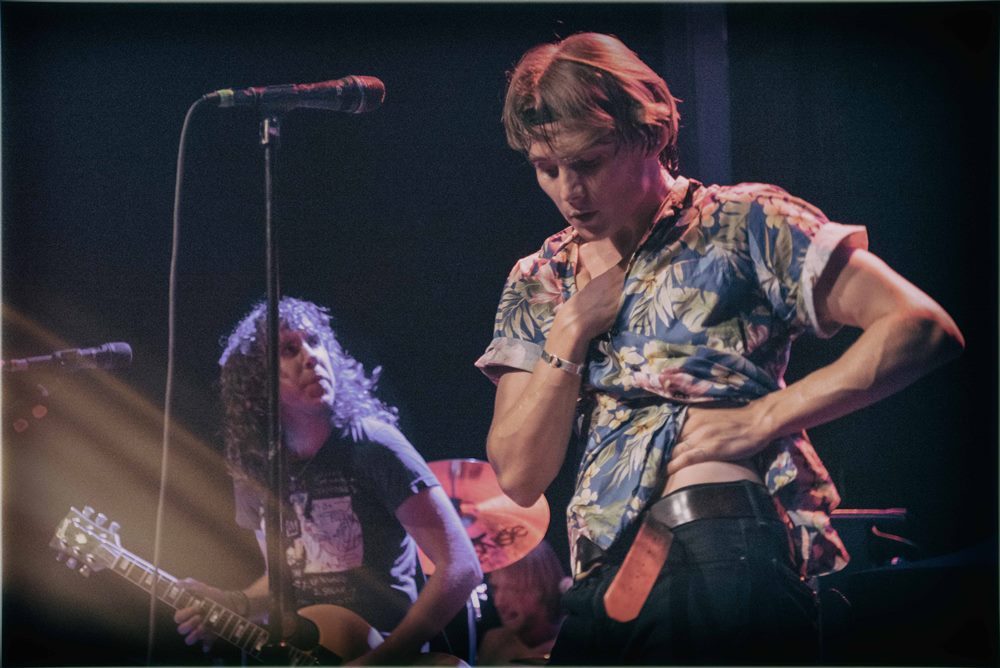
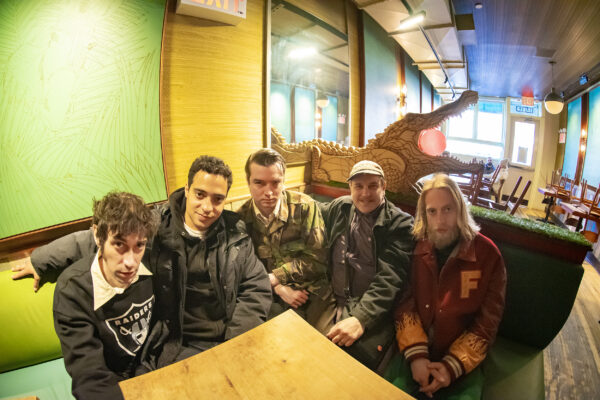
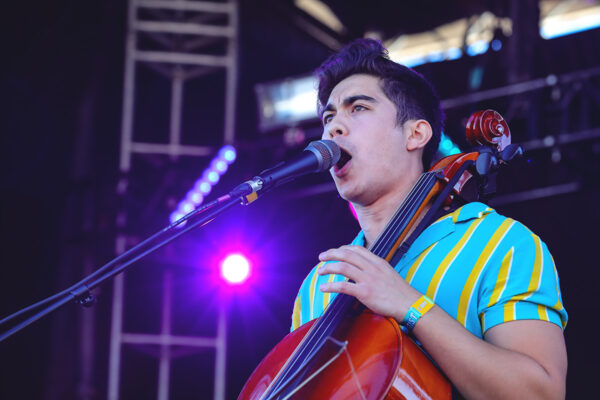
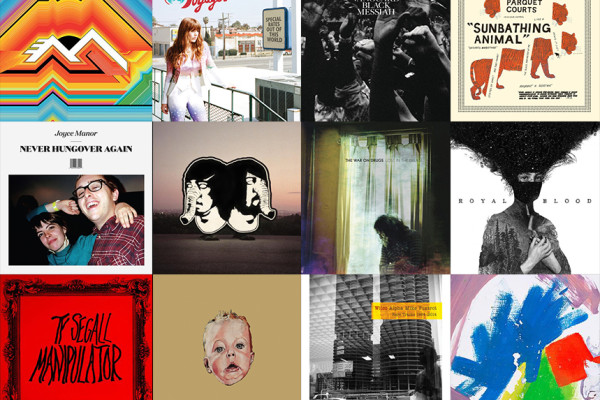
Loners, Together: Missio + Welshly Arms in NYC – Blurred Culture
[…] was my third time seeing Missio (photos + interview from last year here), and when a set is so seamless and high-energy, it can be hard to imagine how a band will kick it […]